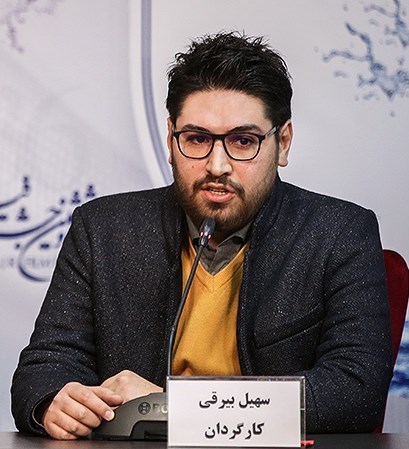Soheil Beiraghi's 'Bidad': A Voice for Gen Z Women in Iran

In a bold move reflecting the struggles of women in Iran, filmmaker Soheil Beiraghi's fourth feature film, "Bidad," premiered at the 59th Karlovy Vary International Film Festival (KVIFF) on July 8, 2025. The film, known in English as "Outcry," tells the poignant story of Seti, a Gen Z girl in Tehran who defies societal restrictions by singing in public spaces, an act forbidden for women in the country. This narrative serves as a powerful commentary on the broader issues of censorship and gender inequality faced by Iranian women.
Beiraghi, who wrote, directed, produced, and co-edited the film, has garnered attention for his previous works that emphasize strong female characters. His production company, Alef Pictures, is also managing the film's sales. Speaking through an interpreter, Beiraghi shared his motivations for creating "Bidad," explaining, "The film is inspired by all the girls who live in Tehran, who are hurt because of restrictions from their fathers, their families, from their managers, from anyone who has an upper hand over them."
This emphasis on female empowerment is central to Beiraghi’s work. He noted, "Women are strong," countering the prevalent depiction of women in Iranian cinema as submissive. The filmmaker's goal is to challenge these stereotypes by revealing the resilience and complexity of women's lives in Iran.
Censorship remains a pressing issue, as Beiraghi revealed that he faced scrutiny from Iranian authorities during the film's production. "They can do whatever they want," he stated, expressing his commitment to telling the story of life in Iran, despite potential personal repercussions. Beiraghi is reportedly aware of legal threats against him and his team but remains undeterred, believing that the voices of future generations cannot be silenced indefinitely.
At the KVIFF, "Bidad" was showcased amidst a backdrop of heightened interest due to its controversial subject matter. The festival's decision to delay the announcement of the film was an intentional move to safeguard Beiraghi, reflecting the precarious nature of artistic expression in Iran. The film aims to resonate not only with audiences in the diaspora but also with Iranians at home, even in the absence of official screenings. Beiraghi remarked, "There’s something way more important than official screening licenses and official cinemas in Iran. And that’s the chain, the human chain that exists, which is the community of Iranians anywhere in the world."
The film's narrative journey parallels Seti’s personal growth, symbolized through the transformation of a caterpillar into a butterfly, representing the struggle and resilience of Iranian women. Beiraghi concluded with a hopeful perspective: "They cannot keep doing this forever. Totalitarian regimes try to control and restrict, but the reality is that they cannot keep doing that forever."
As "Bidad" continues to make waves on the international festival circuit, it stands as a testament to the courage of artists like Beiraghi who dare to share stories that challenge the status quo, offering a voice to those who have long been silenced.
Advertisement
Tags
Advertisement





